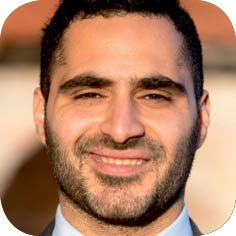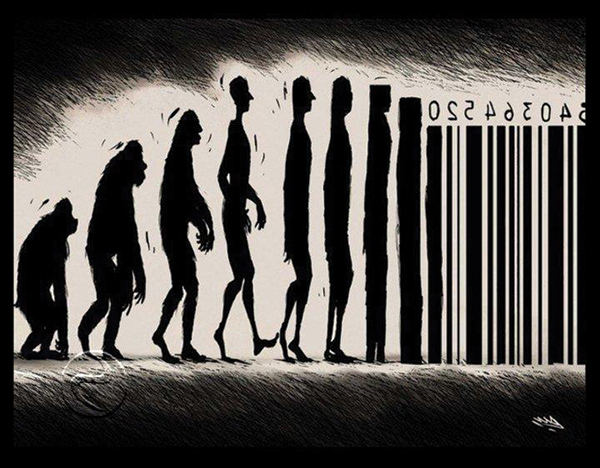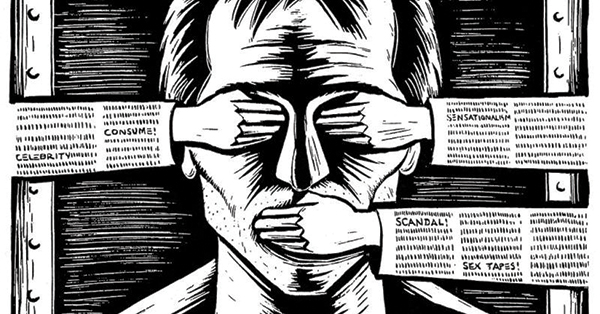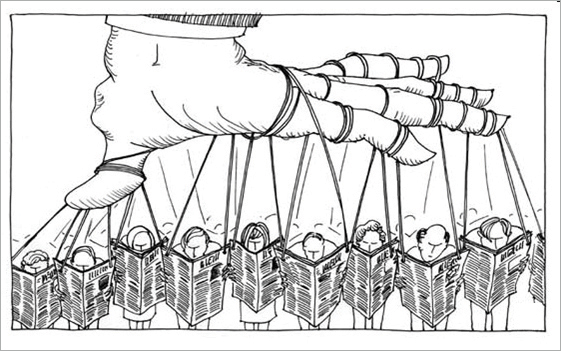As a communications person, I am quite surprised by the fact that people believe in the credibility of media. Most of us consider that what is written in a book, broadcast on TV, or published on a news site is correct and honest, which is unfortunately not the case. Actually, you shouldn’t entirely believe what you are reading right now!
It has taken me quite some time to think about this piece, since the topic is full of information, examples, and facets. When it comes to propaganda, examples are everywhere, and everything around us is considered to be an impactful media vehicle. Some people refer to propaganda as advertising, but here I am referring to the manipulation of information. Propaganda is practiced by tweaking facts, hiding parts of the truth, or showcasing the truth in a non-genuine way. This is not part of Dan Brown’s conspiracy theories, but an every-second exposure of incorrect, dishonest, and imitative information that frames our daily lives.
Propaganda usually has either a political or corporate motive, as well as an egoistic one. Nevertheless, it can spread among us unintentionally in the form of rumors and stereotypes as well as through social influences. What makes these messages very effective is their placement in highly credible channels, for instance, books, studies, and news. A book usually reflects the ideology of the author and therefore might favor a political party or a certain doctrine. Films that are based on true stories are not necessarily true, although the story is based on facts. The number of egocentric studies conducted worldwide is not small, and their main purpose is to make you believe something in favor of the publisher. In the 1990s, tobacco companies were found guilty of paying German scientists to conduct research that denies tobacco’s effects on health. News that we all receive from newspapers, radio, TV, and other media outlets are mostly propaganda and can hardly be neutral; the Palestinian-Israeli conflict is just one of the best examples.
♦ Most religions forbid people to think about certain things. Alas, we have apparently adopted this approach towards other information we are exposed to, especially information disseminated by politicians and money-makers.
If I look closely at the political scene, I personally see no difference between a totalitarian regime and a democratic regime; the former forces you to believe something and the latter showers you with propaganda that aims to make you behave the way the regime wants you to. Different technique, same outcome! Even on a corporate level, corporate social responsibility initiated by several companies worldwide has never meant to give back to the community but to greenwash and occupy a larger share of your wallet. One of the main results of corporate propaganda is consumerism, in which people have become addicted to shopping. Many of us run to shops to buy things offered on sale no matter what the original price! Even if it is over our budget, we buy it just because we like the idea of getting a discount. Unsurprisingly, the Palestinian consumer is just spending the bank’s money. It is easy to get a loan these days, but at some point, it will not be easy to take the economy out of this fake show. As someone once said: “People are buying things they don’t need with money they don’t have.”
If you ever spare a moment to think about your beliefs, you realize that many have been implanted in your mind since you were kid. Standards that determine a girl’s attractiveness are based on the information you interpreted earlier in your life; the Barbie with a nicely designed physique is one good source of information in that case. Paradoxically, traditional people in Mauritania believe that a girl must be obese in order to look attractive and find a husband. That is simply what they were told when they were young! Even the way we look at some animals is somehow manipulated. Sharks, for example, are not really as atrocious as we think they are. Your chances of being attacked by a shark are lower than your chances of being attacked by a street dog. Those who dive are aware of that, while others still recall the number of cruel sharks they have seen in cartoon movies, films, and/or stories.
The media also has an irritating way of littering nutrition news all over magazines, newspapers, books, and TV news broadcasts. It is quite sad that we are becoming obsessed and worried all the time about what and how we eat and drink. The other day, I read an article that mentions the strawberry’s benefits for the heart. The day after, it was noted that bananas provide almost the same benefits. If you search online you might find that melon produces similar benefits. I am not a nutritionist, but I believe that all kinds of food are healthy; just eat everything in reasonable amounts! Moreover, my recommendation is that you look for health information only on specialized health sites and in clinics. Other channels might contain inaccurate information copied from the Web so that they can attract a wider audience, and eventually, more advertising money.
Humans usually deny the fact that their daily decisions and thoughts are all affected by propaganda. I personally fall into the trap quite often. It is just inevitable! Two days ago I was planning to change my brand of cigarettes, and on the way to the supermarket I thought that buying a more expensive brand would probably be better and less harmful. Unconsciously, we all have these things in mind, but in reality, tobacco is poisonous anyway, and setting higher prices for goods is just a pricing strategy. What makes it even worse is that I have actually taught pricing as part of a marketing module at the university, and I have explained to students how an inflated price is intentionally set to make people think that the product’s quality is high. Nonetheless, I still have the potential to be tricked, and eventually, by the time this article is published I shall no longer be a smoker!
» Anan Abu Rmieleh is a communications and digital-marketing consultant who has an international outlook on and understanding of propaganda, tech PR, and social media. Anan holds a master’s degree in corporate communication and public relations from the University of Leeds – UK, and has worked at several profit and non-profit organizations in Palestine and abroad.





